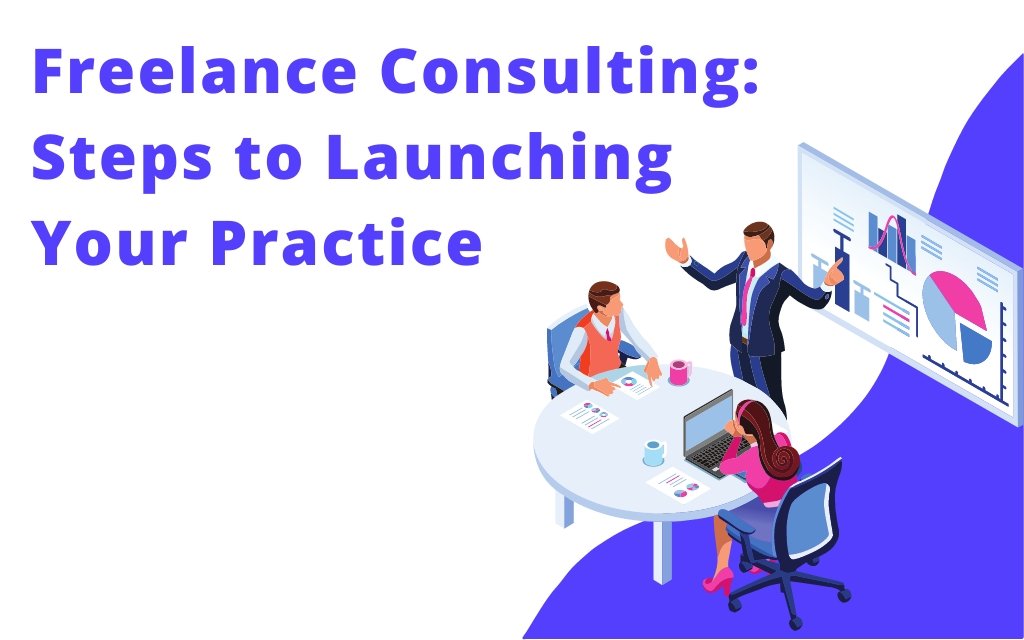Freelance consulting is a popular and lucrative career option for many professionals who want to leverage their skills, knowledge, and experience to help clients solve their problems and achieve their goals. Freelance consultants can work in various fields, such as business, marketing, finance, technology, education, health, or design.
Freelance consulting offers many benefits, such as:
- Flexibility: You can choose your own clients, projects, rates, and schedule
- Autonomy: You can be your own boss and make your own decisions
- Variety: You can work on different types of projects and challenges
- Growth: You can learn new skills and expand your network
- Income: You can earn more money than a regular employee
However, freelance consulting also involves some challenges, such as:
- Competition: You have to stand out from other consultants and prove your value
- Marketing: You have to promote yourself and find clients
- Management: You have to manage your time, finances, and contracts
- Delivery: You have to deliver quality work and meet deadlines
- Support: You have to deal with isolation and lack of resources
If you are interested in becoming a freelance consultant or want to grow your freelance consulting practice, here are some steps that can help you launch and succeed.
1. Define your niche and service
The first step to becoming a freelance consultant is to define your niche and service. This will help you identify your target market, showcase your expertise, and differentiate yourself from the competition.
To define your niche and service, you need to:
- Assess your skills, knowledge, and experience in your field
- Research the demand, trends, and challenges in your industry
- Identify the problems that you can solve and the value that you can provide for your clients
- Choose a specific area or topic that you want to focus on and specialize in
- Create a clear and concise description of your service and benefits
2. Build your portfolio and brand
The second step to becoming a freelance consultant is to build your portfolio and brand. This will help you demonstrate your skills, credibility, and personality as a freelance consultant. It will also help you attract potential clients and generate leads.
To build your portfolio and brand, you need to:
- Collect samples of your previous work or projects that showcase your results and impact
- Create a website or blog that displays your portfolio and services
- Use social media platforms like LinkedIn, Twitter, or Facebook to share your insights and engage with your audience
- Create a logo, slogan, or tagline that represents your brand identity
- Develop a personal style and voice that reflects your brand personality
3. Set your prices and policies
The third step to becoming a freelance consultant is to set your prices and policies. This will help you establish your worth, communicate your expectations, and protect your rights and interests as a freelance consultant.
To set your prices and policies, you need to:
- Research the average rates in your niche and area
- Calculate your costs, expenses, and taxes
- Consider your value proposition, experience level, and project complexity
- Choose a pricing strategy that suits your service and goals, such as hourly rate, project rate, retainer fee, or value-based fee
- Create a contract or agreement that outlines the scope of work, deliverables, timeline, payment terms, confidentiality clauses, etc.
4. Find and pitch clients
The fourth step to becoming a freelance consultant is to find and pitch clients. This will help you generate income, build relationships, and grow your freelance consulting practice.
To find and pitch clients, you need to:
- Define your ideal client profile and target market
- Use various channels to find potential clients who need your service such as online platforms or websites like FlexJobs, Upwork, Work For Impact, or FreelancerMap; referrals or testimonials from past or current clients; networking events or groups; social media or email marketing; etc.
- Craft a compelling pitch that highlights your service value proposition benefits; provides relevant samples or testimonials; addresses the client’s pain points or goals; proposes a solution or action plan; etc.
- Follow up with the client until you get a response or feedback
5. Deliver and maintain quality work
The fifth and final step to becoming a freelance consultant is to deliver and maintain quality work. This will help you satisfy your clients, earn repeat business, and build your reputation and referrals as a freelance consultant.
To deliver and maintain quality work, you need to:
- Communicate clearly and regularly with your clients
- Manage your time and resources efficiently and effectively
- Use the best tools and methods to complete your work
- Meet or exceed your client’s expectations and requirements
- Ask for feedback, reviews, or testimonials from your clients
- Seek continuous improvement and learning opportunities
How to find your first freelance client
Conclusion
Freelance consulting is a rewarding and challenging career that allows you to use your skills, knowledge, and experience to help clients solve their problems and achieve their goals. By following these steps, you can launch and succeed as a freelance consultant.




